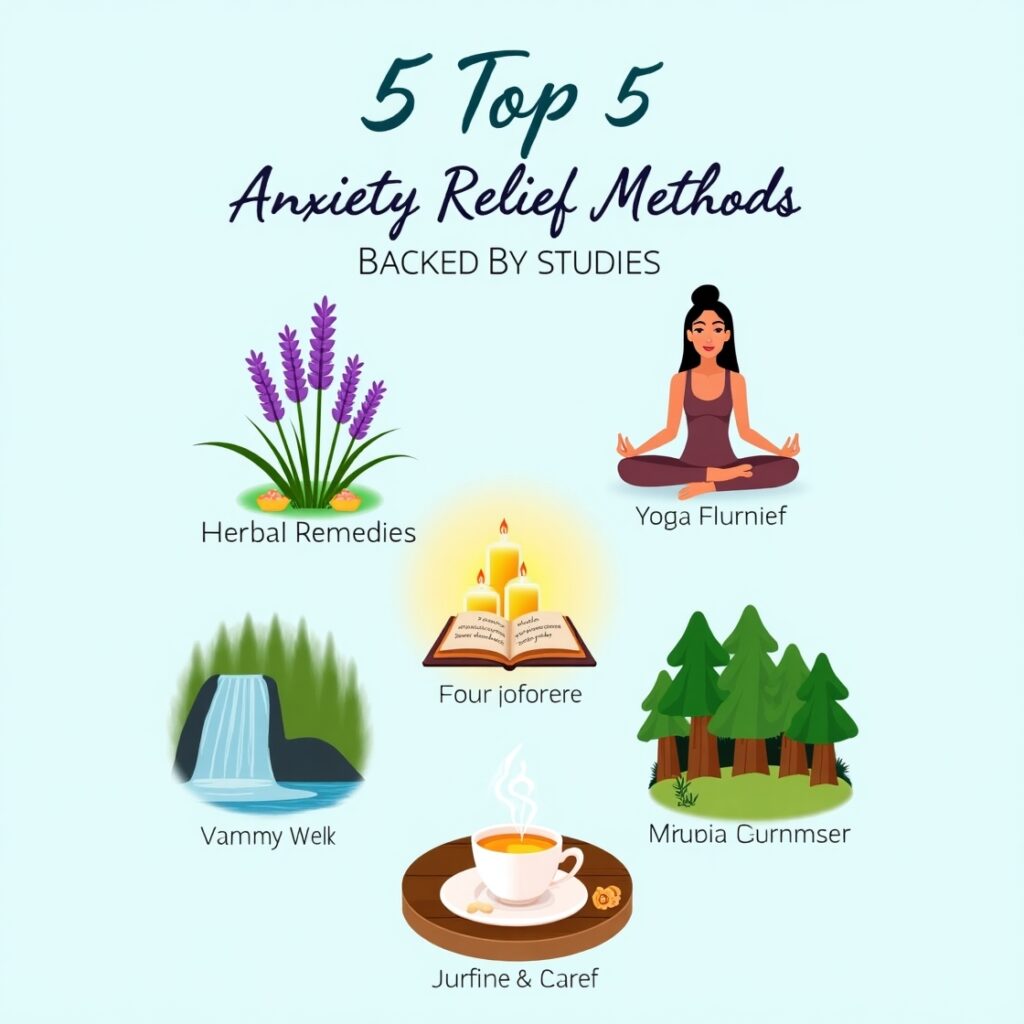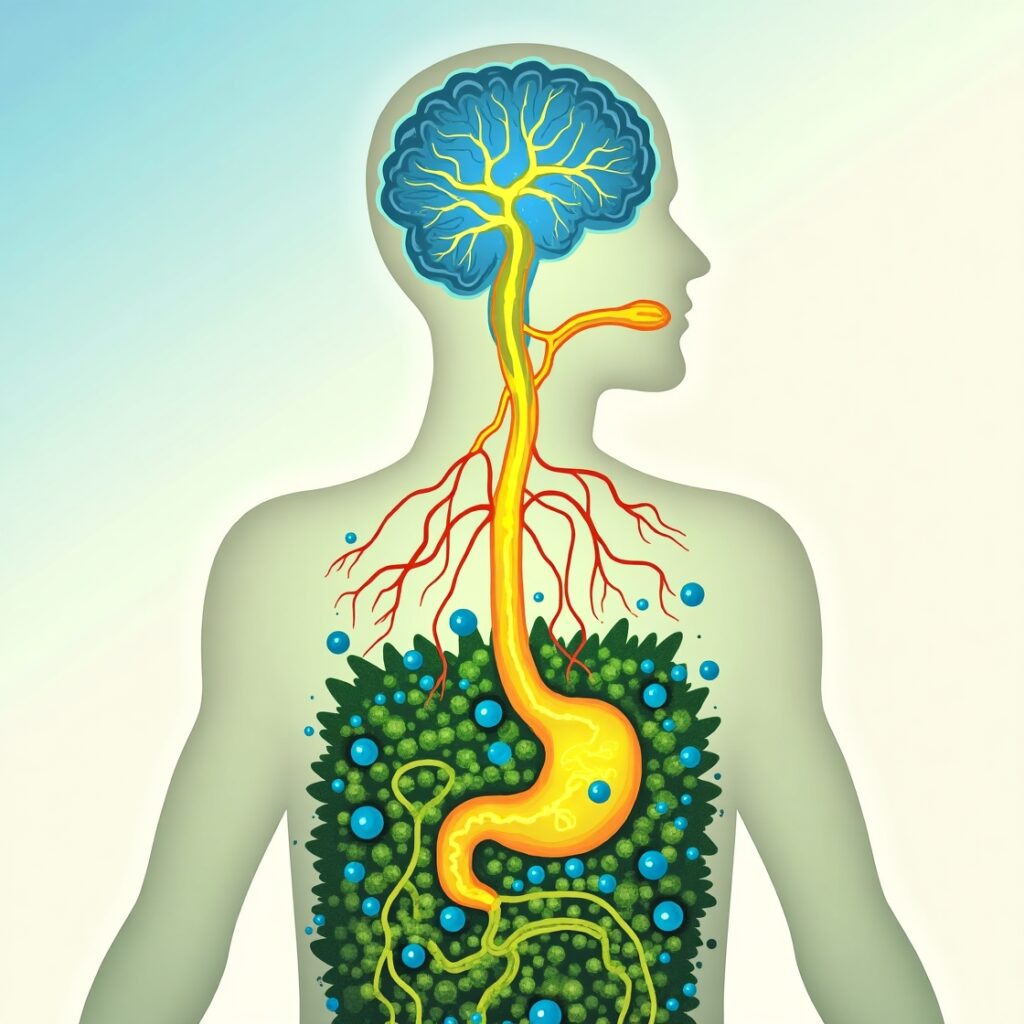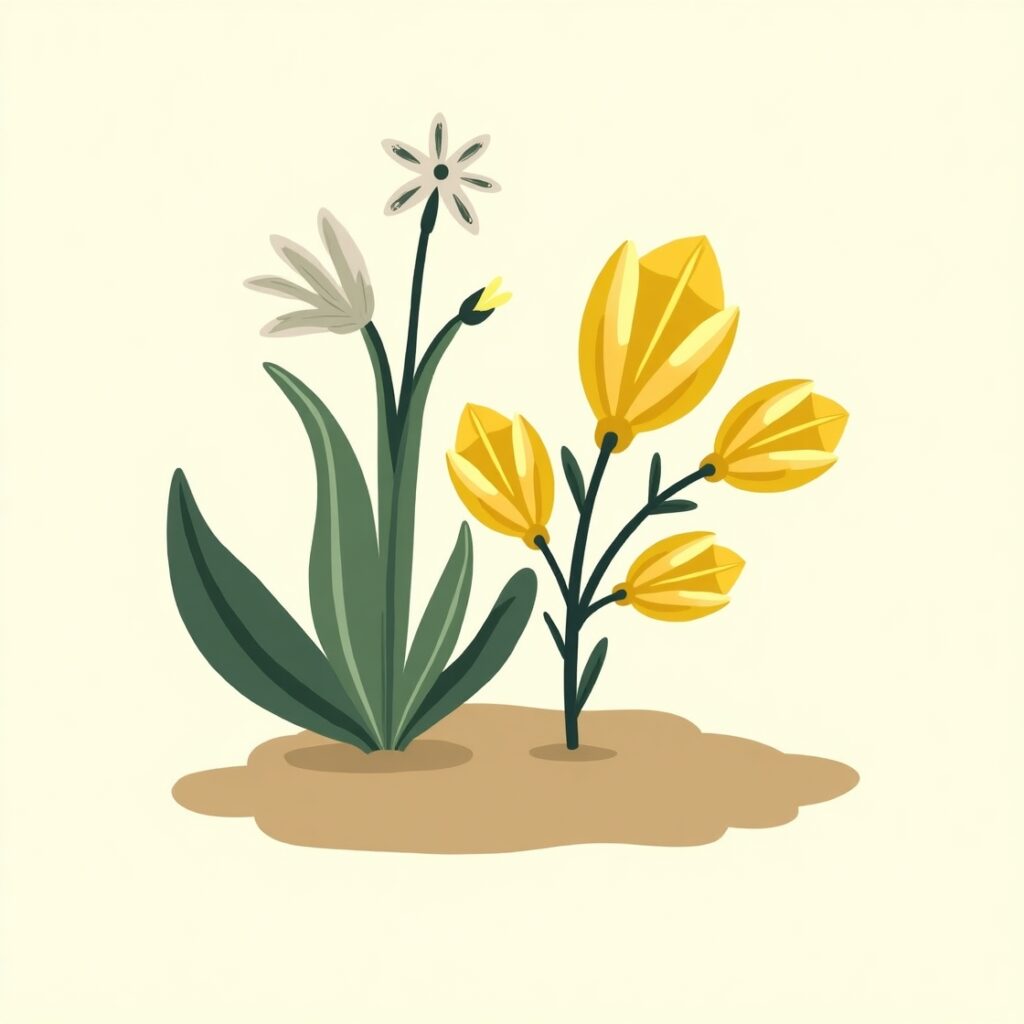Anxiety has become the background noise of modern life — but what if the real solutions aren’t in your medicine cabinet?
In a world where over 300 million people globally struggle with anxiety disorders, according to the World Health Organization’s latest 2024 data, the search for effective natural anxiety relief has never been more urgent. While pharmaceutical interventions have their place, emerging research reveals that nature-based approaches can be remarkably effective for managing anxiety symptoms.
This comprehensive guide cuts through the noise to explore natural remedies for anxiety that are actually backed by rigorous scientific studies — methods that remain proven and accessible in 2025. From ancient adaptogenic herbs now validated by modern clinical trials to cutting-edge breathwork techniques used by Navy SEALs, we’ll explore evidence-based strategies that can help you reclaim your calm without relying solely on medication.
Whether you’re dealing with generalized anxiety, social anxiety, or the unique stressors of our rapidly changing world, these natural approaches offer hope for a more balanced, peaceful life.
What is Anxiety and Why It’s Increasing in 2025
Anxiety disorders encompass several conditions, including Generalized Anxiety Disorder (GAD), panic disorder, social anxiety disorder, and specific phobias. While these conditions have existed throughout human history, 2025 presents unprecedented challenges that are amplifying anxiety levels across populations.
The modern anxiety epidemic stems from several converging factors: AI-driven job market disruptions creating economic uncertainty, climate anxiety affecting younger generations, and digital overstimulation from constant connectivity. According to the American Psychological Association’s 2024 Stress in America report, technology-related stress has increased by 35% since 2020, while climate-related anxiety affects nearly 60% of young adults.
Understanding these modern triggers is crucial because it informs why traditional natural remedies for anxiety need to be adapted and combined with contemporary wellness strategies to address today’s unique stressors.

Natural Anxiety Relief: What Actually Works According to Science (2025 Update)
Deep Breathing and Box Breathing Techniques
Perhaps no natural intervention is as immediately accessible as controlled breathing. The Navy SEALs’ “box breathing” technique (4-4-4-4 pattern: inhale for 4, hold for 4, exhale for 4, hold for 4) has been extensively studied by Harvard Medical School researchers.
A 2023 study published in the Journal of Clinical Medicine found that just 10 minutes of structured breathing techniques for anxiety can reduce cortisol levels by up to 23% and activate the parasympathetic nervous system within minutes. The technique works by stimulating the vagus nerve, which signals your body to shift from “fight or flight” mode to “rest and digest.”
Why Natural Anxiety Relief is Gaining Popularity in 2025
In 2025, more people than ever are exploring natural alternatives…
Social media, scientific studies, and mental health advocates are pushing for safer, science-backed strategies…
How to apply: Practice box breathing for 5-10 minutes daily, particularly during high-stress moments. Apps like Breathe or simply counting can help you maintain the rhythm until it becomes natural.
Adaptogenic Herbs: Ashwagandha, Rhodiola, and Holy Basil
Adaptogens represent one of the most promising categories of adaptogens for anxiety, with mounting clinical evidence supporting their use. Ashwagandha (Withania somnifera) leads the research, with a landmark 2022 randomized controlled trial showing that 600mg daily reduced cortisol levels by 27.9% over 60 days.
Rhodiola rosea, another powerful adaptogen, has demonstrated significant anti-anxiety effects in multiple studies. A 2021 meta-analysis found that rhodiola supplementation improved anxiety symptoms by an average of 32% compared to placebo groups.
Holy basil (Ocimum sanctum) offers additional benefits, with research showing it can reduce anxiety scores by up to 39% while also improving sleep quality and cognitive function.
How to apply: Start with standardized extracts: ashwagandha (300-600mg daily), rhodiola (200-400mg daily), or holy basil (300-600mg daily). Always consult healthcare providers before starting any supplement regimen, especially if taking medications.
Science-Backed Natural Anxiety Relief Methods That Work
Magnesium, L-Theanine & Omega-3 Supplements
The trilogy of best supplements for anxiety — magnesium, L-theanine, and omega-3 fatty acids — has robust scientific backing. Magnesium deficiency affects nearly 50% of Americans and directly correlates with increased anxiety symptoms. A 2022 systematic review found that magnesium glycinate (200-400mg daily) reduced anxiety scores by an average of 42%.
L-theanine, an amino acid found in green tea, promotes relaxation without sedation. Clinical studies show that 200mg of L-theanine increases alpha brain waves associated with calm alertness within 30-40 minutes of consumption.
Omega-3 fatty acids, particularly EPA and DHA, support neurotransmitter function and reduce inflammation linked to anxiety. The optimal dosage appears to be 1000-2000mg of combined EPA/DHA daily, with higher EPA ratios showing superior anti-anxiety effects.
How to apply: Consider a comprehensive approach: magnesium glycinate before bed, L-theanine during stressful periods, and high-quality fish oil or algae-based omega-3s with meals.
Gut-Brain Axis: The Role of Probiotics & Fermented Foods
The connection between anxiety and gut health has exploded in research significance, with 2024-2025 studies revealing that gut microbiome diversity directly impacts anxiety levels. The gut produces over 90% of the body’s serotonin, making digestive health crucial for mental wellbeing.
A groundbreaking 2024 study published in Nature Neuroscience found that specific probiotic strains (Lactobacillus helveticus R0052 and Bifidobacterium longum R0175) reduced anxiety symptoms by 31% over 8 weeks. Additionally, fermented foods like kimchi, kefir, and sauerkraut provide beneficial bacteria and bioactive compounds that support the gut-brain axis.
How to apply: Incorporate 1-2 servings of fermented foods daily and consider a high-quality probiotic with at least 10 billion CFUs of diverse strains. Focus on prebiotic foods (garlic, onions, bananas, asparagus) to feed beneficial bacteria.
Exercise and Movement: Yoga, Cardio, and Strength Training
Physical activity remains one of the most potent lifestyle changes for anxiety, with exercise showing comparable efficacy to certain pharmaceutical interventions. A 2023 meta-analysis of 128 studies found that regular exercise reduces anxiety symptoms by an average of 48%.
Different exercise modalities offer unique benefits:
- Cardiovascular exercise (running, cycling, swimming) increases endorphins and reduces cortisol within 20-30 minutes
- Strength training provides anxiety relief that lasts 2-4 hours post-workout through improved stress resilience
- Yoga combines movement, breathwork, and mindfulness, with studies showing 30-40% reductions in anxiety after 8-12 weeks of regular practice
How to apply: Aim for 150 minutes of moderate exercise weekly, including both cardio and strength components. Even 10-minute walks can provide immediate anxiety relief through endorphin release.

Cold Exposure & Breathwork: Wim Hof Method and Cryotherapy
Cold exposure therapy has emerged as a powerful tool for anxiety management, popularized by Wim Hof’s breathing and cold exposure methods. Research from 2024 shows that controlled cold stress activates the sympathetic nervous system in a controlled manner, building resilience to future stressors.
Cold showers (30 seconds to 2 minutes at 50-60°F) increase norepinephrine by up to 530% and dopamine by 250%, creating sustained improvements in mood and stress tolerance. Cryotherapy sessions (2-3 minutes at -200°F to -250°F) offer similar benefits in a controlled environment.
How to apply: Start with 30-second cold showers, gradually increasing duration. Combine with deep breathing before, during, and after cold exposure. Commercial cryotherapy centers offer professional sessions for those seeking more intensive treatments.
Sleep Hygiene and Circadian Rhythm Reset
Quality sleep is fundamental to anxiety management, with sleep disruption both causing and worsening anxiety symptoms. Recent circadian rhythm research emphasizes the importance of light exposure timing, consistent sleep-wake cycles, and optimal sleep environment conditions.
Key strategies include maintaining consistent bedtimes within 30 minutes, getting morning sunlight exposure within 1 hour of waking, and avoiding blue light 2 hours before sleep. Sleep tracking apps like Rise or Sleep Cycle can help identify patterns and optimize timing.
How to apply: Create a sleep sanctuary with blackout curtains, cool temperatures (65-68°F), and establish a 30-minute wind-down routine including activities like reading, gentle stretching, or meditation.
Cognitive Behavioral Therapy and Mindfulness-Based Cognitive Therapy
Cognitive behavioral therapy represents the gold standard for anxiety treatment, with numerous studies showing 60-80% success rates for various anxiety disorders. CBT teaches practical skills for identifying and changing anxious thought patterns.
Mindfulness-Based Cognitive Therapy (MBCT) combines CBT principles with mindfulness meditation, showing particular efficacy for preventing anxiety relapse. Digital CBT platforms like MindShift, Sanvello, or traditional therapy sessions provide structured approaches to developing these skills.
How to apply: Start with thought monitoring — notice anxious thoughts without judgment, challenge their accuracy, and develop balanced alternative perspectives. Practice mindfulness meditation 10-20 minutes daily using apps like Headspace or Calm.
Meditation, Prayer & Faith-Based Calm Practices
Meditation’s anxiety-reducing effects are well-documented, with neuroimaging studies showing increased activity in brain regions associated with emotional regulation and decreased activity in the amygdala (fear center). Different meditation styles offer varying benefits:
- Mindfulness meditation reduces anxiety by 38-58% according to multiple studies
- Loving-kindness meditation specifically addresses social anxiety
- Transcendental meditation shows particular efficacy for trauma-related anxiety
Faith-based practices, including prayer, religious meditation, and spiritual community engagement, provide additional anxiety relief through social support, meaning-making, and transcendent connection.
How to apply: Begin with 5-10 minutes daily of chosen practice. Consistency matters more than duration. Consider joining meditation groups or faith communities for additional support.
Digital Detox and Dopamine Reset
The relationship between digital consumption and anxiety has become increasingly clear, with 2024 research showing direct correlations between screen time and anxiety levels. Social media platforms, news consumption, and constant notifications create chronic low-level stress responses.
Natural anxiety relief in 2025 increasingly involves conscious digital boundaries. Studies show that even brief social media breaks (7-14 days) can significantly reduce anxiety and improve overall wellbeing.
How to apply: Implement “phone-free” hours, use app timers to limit social media, create device-free bedrooms, and practice regular “digital sabbaths” to reset dopamine sensitivity and reduce anxiety-provoking stimuli.

Myths About Natural Anxiety Relief – What Doesn’t Work
While exploring natural approaches, it’s crucial to separate evidence-based methods from unproven trends:
CBD without regulation: While promising, CBD research remains limited, and unregulated products may contain inconsistent or harmful ingredients.
Essential oils as primary treatment: While aromatherapy can provide mild relaxation benefits, essential oils alone are insufficient for managing clinical anxiety.
TikTok anxiety “hacks”: Viral social media advice often lacks scientific backing and may sometimes worsen anxiety through unrealistic expectations.
Instant cures: Natural anxiety relief requires consistency and patience. Be wary of any method promising immediate, permanent results.
Building trust in natural approaches means acknowledging their limitations and emphasizing evidence-based practices over trending but unproven methods.
How to Create Your Own Anxiety Relief Toolkit
Your 5-Point Natural Anxiety Protocol:
1. Choose One Supplement: Start with magnesium glycinate (200-400mg) or ashwagandha (300-600mg), based on your primary symptoms and healthcare provider guidance.
2. Establish One Daily Habit: Implement 10 minutes of morning box breathing or evening meditation, maintaining consistency over intensity.
3. Master One Breathing Technique: Practice box breathing (4-4-4-4 pattern) during stressful moments until it becomes automatic.
4. Make One Diet Change: Add one serving of fermented foods daily (kefir, kimchi, or sauerkraut) to support gut-brain health.
5. Adopt One Mental Practice: Choose either daily gratitude journaling, mindfulness meditation, or CBT-based thought challenging exercises.
Start with one element, master it over 2-3 weeks, then gradually add others. This prevents overwhelm while building sustainable anxiety management skills.
Frequently Asked Questions
What is the fastest natural way to reduce anxiety?
Answer: Box breathing (4-4-4-4 pattern) provides the quickest relief, often working within 2–5 minutes by activating your parasympathetic nervous system. Cold water on wrists and face can also provide immediate physiological calming.
Can I replace anxiety medications with natural methods?
Answer: Never discontinue prescribed medications without medical supervision. Natural methods can complement traditional treatment and may reduce medication needs over time, but this should always be coordinated with your healthcare provider.
What supplements are proven for anxiety relief?
Answer: Magnesium, L-theanine, omega-3 fatty acids, and ashwagandha have the strongest research backing. Quality matters — choose third-party tested products with standardized extracts.
Is magnesium good for anxiety?
Answer: Yes, magnesium deficiency is linked to increased anxiety, and supplementation (particularly magnesium glycinate) has shown 40–50% anxiety reduction in multiple studies. Most adults benefit from 200–400mg daily.
How long does it take for natural remedies to work?
Answer: Timeline varies by method: breathing techniques work within minutes, supplements typically show effects in 2–8 weeks, while lifestyle changes like exercise and meditation may take 4–12 weeks for full benefits. Consistency is key.
Conclusion
There is a path to calm — and you don’t always need a prescription to find it. The convergence of ancient wisdom and modern science has revealed powerful natural anxiety relief methods that can significantly improve your mental wellbeing.
From the immediate relief of controlled breathing to the long-term benefits of adaptogenic herbs and lifestyle modifications, these evidence-based approaches offer hope for managing anxiety in our complex modern world. Remember that natural doesn’t mean instant — these methods require patience, consistency, and often work best when combined rather than used in isolation.
The journey to reduced anxiety is deeply personal. What works for one person may need modification for another. Start with one or two methods that resonate with you, build consistency, and gradually expand your anxiety management toolkit.
Try one method today. Bookmark this guide. Come back when you’re ready to take the next step. Your calmer, more resilient self is waiting on the other side of consistent, evidence-based natural practice.
Remember: If you’re experiencing severe anxiety, panic attacks, or thoughts of self-harm, please seek immediate professional help. Natural methods work best as part of a comprehensive approach that may include professional therapy or medical treatment.






Leave a Reply